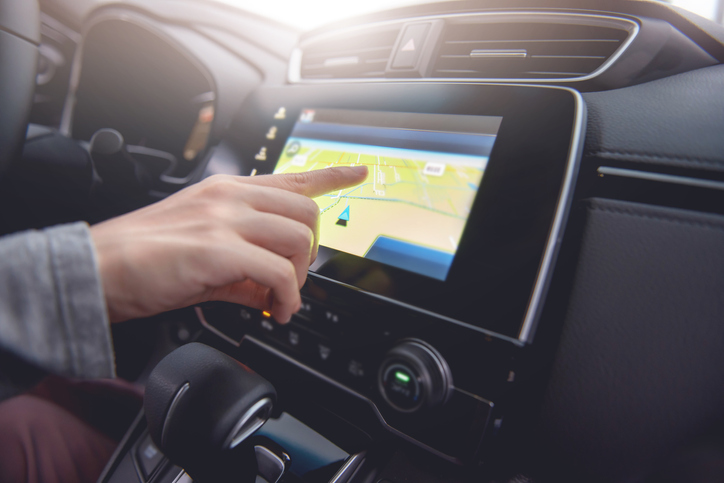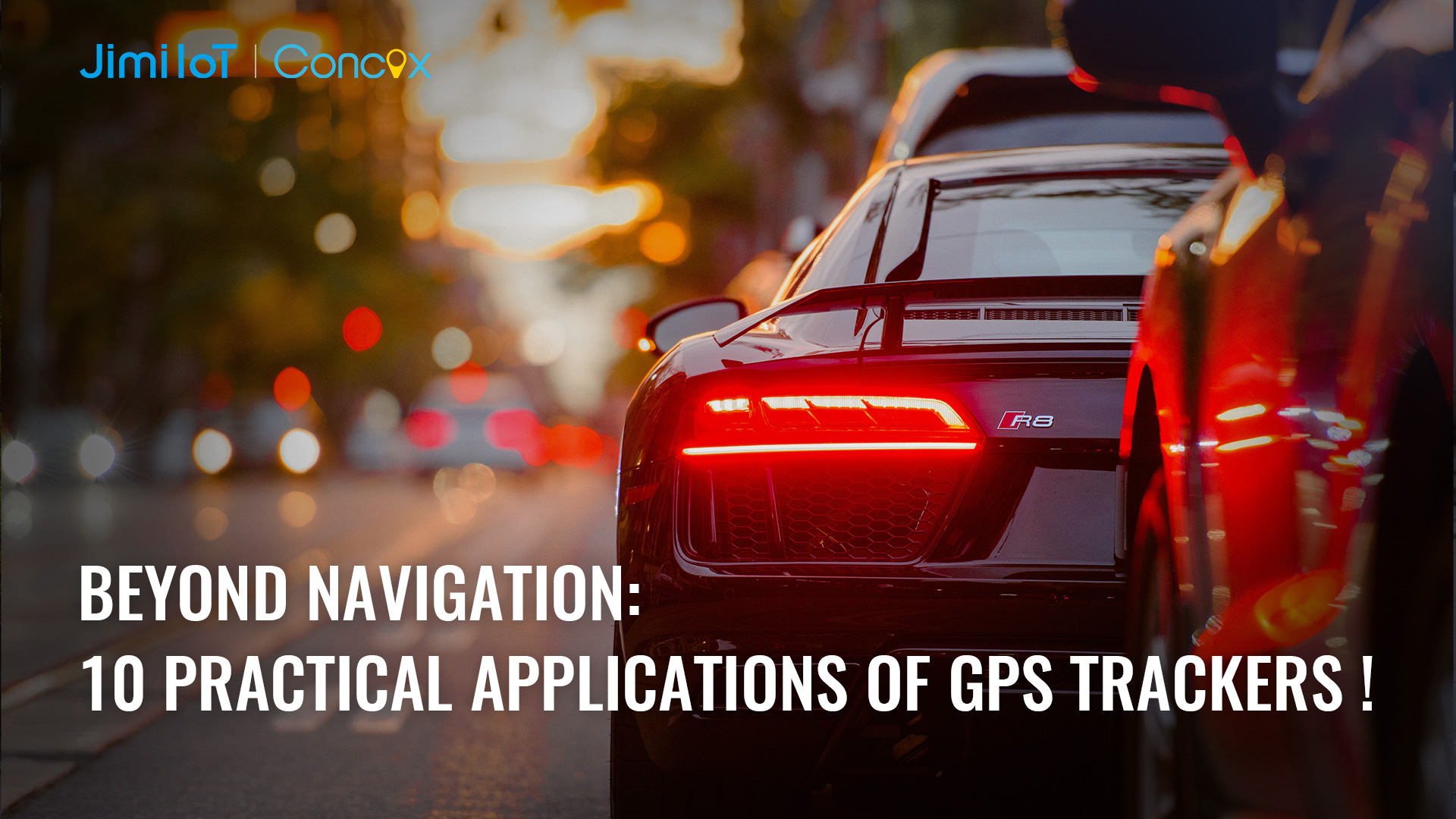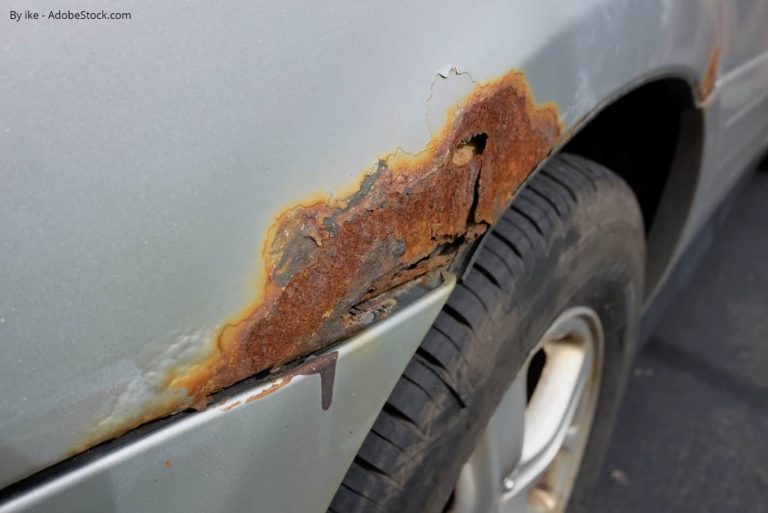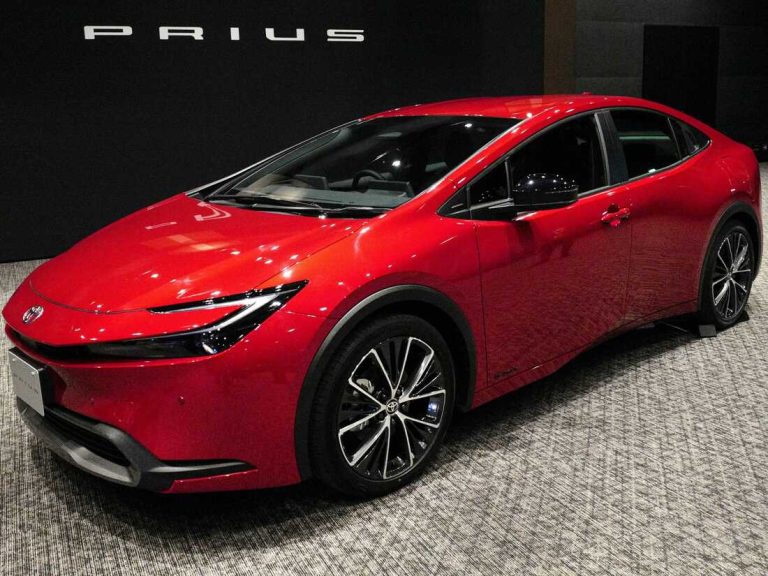Introduction of GPS in Cars: Revolutionizing Navigation Experience
GPS in cars revolutionized the way we navigate, providing accurate and real-time directions. It has become an essential feature for modern vehicles.
With GPS, drivers can effortlessly find their way to any destination, saving time and avoiding unnecessary frustration. It uses satellite signals to track the exact location of the vehicle and provide step-by-step guidance. This technology has made traveling more efficient and convenient, making it a staple in today’s automotive industry.
Whether you are commuting to work or embarking on a road trip, GPS in cars has become an indispensable tool for navigation.

Credit: www.autotrainingcentre.com
Advantages Of Gps Integration
Integrating GPS technology in cars offers numerous advantages, such as accurate navigation, improved safety, and real-time traffic updates, making it easier and more convenient for drivers to reach their destinations. With GPS integration, drivers can experience a seamless and efficient driving experience.
GPS integration in cars has revolutionized the way we navigate, making our journeys more convenient and efficient. With real-time navigation assistance, efficient route planning and optimization, accurate location tracking, reduced travel time and fuel consumption, as well as enhanced safety and security features, GPS integration offers a multitude of advantages.
Let’s explore each of these benefits in detail:
Real-Time Navigation Assistance:
- Turn-by-turn directions ensure you never miss a crucial turn, helping you reach your destination effortlessly.
- Live traffic updates provide real-time information on traffic conditions, enabling you to avoid congested routes and delays.
- Voice-guided instructions make it easy to focus on the road, ensuring a safer and more enjoyable driving experience.
Efficient Route Planning And Optimization:
- GPS integration allows you to plan your route in advance, helping you avoid unnecessary detours and plan your travel time effectively.
- The system recalculates the route if you deviate, suggesting alternative routes to minimize delays.
- With accurate data on road conditions, GPS integration helps you choose the most efficient and time-saving routes.
Accurate Location Tracking:
- The GPS system accurately determines your location, allowing you to find your way in unfamiliar areas and explore new destinations confidently.
- In case of emergencies or breakdowns, accurate location tracking enables swift assistance from authorities or roadside assistance services.
Reducing Travel Time And Fuel Consumption:
- By providing the most efficient routes, GPS integration helps you save time during your journeys, reducing travel delays.
- Avoiding traffic congestions and choosing optimal routes reduces idle time, leading to lower fuel consumption and cost savings.
Enhanced Safety And Security Features:
- GPS integration offers features like vehicle tracking and geo-fencing, helping you monitor your vehicle’s location and track its movements.
- In case of theft or unauthorized usage, GPS integration enables quick recovery of the vehicle.
- In emergency situations, the system can assist in sending your location to emergency services for immediate response.
The advantages of GPS integration in cars are abundant. It provides real-time navigation assistance, efficient route planning, accurate location tracking, reduces travel time and fuel consumption, and enhances safety and security. With these benefits, GPS integration has become an invaluable tool for modern-day drivers, offering convenience, efficiency, and peace of mind.
Evolution Of Gps Technology In Cars
GPS technology has revolutionized cars, providing drivers with accurate navigation and real-time traffic updates. This introduction of GPS in cars has made traveling easier and more efficient, with drivers no longer relying solely on paper maps or asking for directions.
Luxury vehicles have long been at the forefront of integrating GPS technology, starting the revolution of navigation systems in cars. However, as technology advanced, GPS started becoming widely available in mainstream car models, making it a sought-after feature for car owners.
With the increasing demand, GPS technology has evolved to provide a seamless integration experience and has even been integrated with other car systems to further enhance the user experience. Let’s take a closer look at each stage of the evolution:
Early Integration Of Gps In Luxury Vehicles:
- Luxury car manufacturers were the pioneers in integrating GPS technology into their vehicles.
- Early adopters of GPS in cars included brands like Mercedes-Benz, BMW, and Cadillac.
- These vehicles offered built-in navigation systems that provided real-time maps and turn-by-turn directions.
- GPS in luxury cars became a symbol of status and convenience, where drivers no longer had to rely on paper maps or ask for directions.
Widening Availability In Mainstream Car Models:
- As GPS technology became more mature and affordable, it started to trickle down into mainstream car models.
- Car manufacturers recognized the growing demand for navigation systems and started incorporating GPS as a standard or optional feature in their vehicles.
- Popular mainstream brands like Toyota, Honda, and Ford began equipping their cars with GPS-enabled infotainment systems.
- This wider availability made GPS technology accessible to a larger audience and transformed it from a luxury feature to a common expectation.
Advancements In Gps Technology For Seamless Integration:
- With advancements in technology, GPS systems in cars have evolved to provide a seamless and user-friendly experience.
- The integration of GPS with satellite imagery allows for more accurate positioning and detailed maps.
- Voice-guided navigation systems have replaced the need to constantly look at the screen, making it safer and more convenient for drivers.
- Real-time traffic updates and alternate route suggestions help drivers avoid congestion and reach their destinations faster.
- Features like lane assistance, points of interest, and speed limit warnings further enhance the GPS experience in cars.
Integration With Other Car Systems For Improved User Experience:
- Car manufacturers have recognized the potential of integrating GPS technology with other car systems to create a comprehensive user experience.
- GPS systems can now seamlessly connect with a vehicle’s entertainment system, allowing drivers to access music, make hands-free calls, and receive notifications through the GPS interface.
- Integration with the car’s climate control system enables automatic adjustments based on the destination’s weather conditions.
- Advanced GPS systems can even sync with parking assist and collision warning systems to provide additional safety features.
The evolution of GPS technology in cars has come a long way from being exclusive to luxury vehicles to becoming a common and expected feature in mainstream car models. Advancements in GPS technology, seamless integration, and collaboration with other car systems have transformed the driving experience, offering convenience, safety, and efficiency to car owners everywhere.
Gps Features And Functionality In Modern Cars
Modern cars are equipped with advanced GPS features and functionality, providing drivers with accurate navigation and real-time traffic updates. With the introduction of GPS technology, drivers can enjoy a seamless driving experience and easily reach their destinations without any hassle.
Modern cars are equipped with an array of advanced features and functionalities that enhance the overall driving experience. One such innovation is the integration of GPS technology. GPS, or Global Positioning System, allows cars to pinpoint their exact location and provide accurate navigation assistance.
In this section, we will explore the various features and functionalities of GPS in modern cars.
User-Friendly Interface And Touchscreen Displays:
- Intuitive and easy-to-use interface for seamless navigation experience.
- Touchscreen displays enable effortless interaction with the GPS system.
- Accessible menu options and on-screen instructions for simple operation.
Voice-Guided Directions And Turn-By-Turn Navigation:
- Clear and concise voice prompts that guide drivers through each step of their journey.
- Turn-by-turn navigation ensures drivers never miss a turn or exit.
- Real-time updates for upcoming turns and distances.
Traffic Updates And Rerouting Options:
- Live traffic information to help avoid congested routes and save time.
- Automatic rerouting based on traffic conditions for optimal travel efficiency.
- Notifications and alerts for accidents, road closures, and other traffic-related updates.
Points Of Interest And Local Search Capabilities:
- Comprehensive database of points of interest, including restaurants, gas stations, hotels, and more.
- Search functionality for finding specific locations or nearby attractions.
- Reviews, ratings, and additional information to aid in decision making.
Integration With Smartphone Applications And Connectivity Features:
- Seamless integration with smartphone applications, such as Google Maps or Apple Maps.
- Synchronization of data, such as recent searches or saved locations, between the car’s GPS system and the smartphone.
- Connectivity features for hands-free calling, music streaming, and other smartphone-related functions.
GPS technology in modern cars provides a wide range of features and functionalities that make navigation easier, more convenient, and efficient. With user-friendly interfaces, voice-guided directions, traffic updates, and integration with smartphone applications, GPS systems have become an indispensable tool for drivers.
Whether it’s finding the fastest route, discovering new places of interest, or staying connected on the road, GPS in cars has revolutionized the way we navigate and explore the world around us.
Impact Of Gps Integration On Driving Habits And Road Safety
The integration of GPS technology in cars has significantly impacted driving habits and road safety. With GPS navigation systems, drivers can easily find their way and avoid getting lost, reducing distractions and improving focus on the road. Furthermore, real-time traffic updates and route suggestions help drivers make informed decisions, leading to smoother traffic flow and minimizing accidents.
With the integration of GPS technology in cars, driving habits and road safety have experienced significant improvements. Let’s explore the various ways in which this integration has made a positive impact:
- Decreasing reliance on paper maps and physical navigation: GPS navigation systems have replaced the need for traditional maps, allowing drivers to easily navigate unfamiliar territories. No more fumbling with maps and trying to find the right route – the GPS provides clear directions.
- Reduced distracted driving by providing clear directions: Drivers no longer need to take their eyes off the road to check maps or ask for directions. GPS systems eliminate the need for distracting activities, allowing drivers to focus solely on the road.
- Enhanced situational awareness and anticipation of road conditions: GPS technology provides real-time traffic updates, enabling drivers to anticipate congestion, accidents, or road closures. This helps drivers choose alternative routes, avoiding potentially hazardous situations and reducing the likelihood of accidents.
- Mitigating chances of getting lost or taking wrong turns: GPS systems guide drivers with turn-by-turn instructions, ensuring they stay on the correct route. No more missed turns or confusion at intersections, reducing the risk of getting lost or making wrong turns.
- Emergency assistance and automatic vehicle tracking in case of accidents: Many GPS systems are equipped with emergency assistance features that automatically alert emergency services in case of an accident. Additionally, GPS tracking helps authorities locate the vehicle quickly, providing a valuable resource for efficient emergency response.
The integration of GPS technology has revolutionized driving habits and greatly enhanced road safety. By decreasing reliance on paper maps, reducing distracted driving, enhancing situational awareness, mitigating chances of getting lost, and offering emergency assistance, GPS systems have become indispensable companions on our journeys.
Challenges And Limitations Of Gps In Cars
GPS in cars has revolutionized navigation, offering convenience and accuracy. However, challenges and limitations like signal interference and outdated maps can affect its reliability and functionality. Nevertheless, continued advancements aim to overcome these obstacles and enhance the GPS experience in vehicles.
With the advent of GPS technology, cars have become smarter and navigation has become easier. However, like any other technology, GPS in cars comes with its fair share of challenges and limitations. In this section, we will discuss some of the common obstacles that users may encounter when relying on GPS in their vehicles.
Signal Interference In Urban Areas And Dense Environments:
- Signal interference can be a significant issue in urban areas and dense environments. Tall buildings, tunnels, and even trees can obstruct GPS signals, resulting in a loss of connection and inaccurate positioning.
- In cities with skyscrapers and high-rise buildings, the signals can bounce off these structures and create multipath errors, leading to distorted location data.
- Additionally, electronic devices and other wireless technologies operating in the same frequency range can interfere with GPS signals, further affecting the accuracy.
Risk Of Over-Reliance And Loss Of Traditional Navigation Skills:
- Relying solely on GPS for navigation may lead to a loss of traditional navigation skills. Users may become less adept at reading maps and using landmarks, which can be problematic in situations where GPS signals are weak or unavailable.
- In some instances, GPS may suggest less efficient routes or fail to account for road closures or traffic congestion. Users who solely rely on GPS may face difficulties in adapting to such situations and finding alternate routes.
Limited Accuracy And Occasional Inaccuracies In Mapping Data:
- GPS systems heavily rely on mapping data, and the accuracy of the information can sometimes be a limitation. The mapping data may not always be up-to-date, leading to inaccuracies in directions and locations.
- Errors in mapping data can result in navigational mishaps, such as directing users to the wrong address or providing incorrect turn-by-turn instructions.
- Additionally, GPS devices may struggle with identifying exact locations in areas with poor satellite coverage, such as remote regions or dense forests, further impacting accuracy.
Power Consumption And Battery Drain In Prolonged Usage:
- GPS usage drains battery life, and prolonged usage of GPS in cars can significantly impact the vehicle’s battery. This is especially true in older car models or in situations where the battery may not be in an optimal condition.
- Users relying on GPS for long trips should consider charging their devices or using auxiliary power sources to ensure uninterrupted navigation.
Vulnerability To Hacking And Security Breaches:
- GPS systems in cars are not immune to hacking and security breaches. Unauthorized access to a vehicle’s GPS can have severe consequences, including potential thefts and invasions of privacy.
- Hackers may also exploit vulnerabilities in GPS technology to manipulate location data, leading to false directions or malicious rerouting.
Despite these challenges and limitations, GPS remains an invaluable tool for navigation in cars. Users should be aware of these potential drawbacks and take necessary precautions to ensure a smooth and secure navigation experience.
Future Trends In Gps Integration For Cars
Gps integration has revolutionized the way we navigate in cars, providing real-time updates and accurate directions. With future trends in GPS technology, cars are set to become even smarter, with features like voice controls, augmented reality displays, and predictive navigation, making driving more efficient and enjoyable.
Imagine getting behind the wheel of your car and having a navigation system that not only guides you to your destination but also integrates seamlessly with advanced technologies to enhance the driving experience. This is the future of GPS integration in cars.
In this section, we will explore some exciting trends that are shaping the future of GPS integration for cars.
Integration With Advanced Ai Technologies For Personalized Recommendations:
- AI technology is revolutionizing the way GPS systems work in cars.
- Cars equipped with advanced AI can learn from user preferences and provide personalized recommendations for destinations, routes, and points of interest.
- With AI-powered GPS integration, drivers can receive tailored suggestions based on their past navigation history, driving patterns, and even personal preferences.
- This level of personalization enhances the overall driving experience and makes navigation more efficient and enjoyable.
Augmented Reality Overlays For More Intuitive And Immersive Navigation:
- Augmented reality (AR) overlays take GPS integration to a whole new level.
- By combining real-time GPS data with live video feeds, AR overlays can provide drivers with a more intuitive and immersive navigation experience.
- With AR, navigation instructions can be displayed directly on the windshield, allowing drivers to keep their eyes on the road while still receiving visual guidance.
- AR overlays can also highlight points of interest, upcoming road hazards, and even provide lane guidance, making navigation safer and more convenient.
Integration With Smart Home Devices For Seamless Navigation Transitions:
- Picture this: You’re running late for a meeting, and your GPS system automatically syncs with your smart home device to prepare your house for your departure.
- Integration with smart home devices allows for seamless navigation transitions, where your GPS system can communicate with your smart home to adjust thermostat settings, turn off lights, and even lock doors.
- Furthermore, when you arrive home, your GPS system can notify your smart home to open the garage door and turn on the porch lights.
- This level of integration not only adds convenience but also enhances the overall connectedness of your home and car.
Continued Improvements In Accuracy And Real-Time Data Updates:
- GPS systems are constantly evolving to provide more accurate and up-to-date information.
- With advancements in satellite technology and improved algorithms, GPS integration in cars is becoming increasingly precise, ensuring that drivers receive accurate turn-by-turn directions.
- Real-time data updates further enhance the accuracy of GPS systems, allowing for dynamic rerouting based on traffic conditions, road closures, and even weather conditions.
- As GPS technology continues to improve, drivers can expect more reliable and efficient navigation experiences.
Integration With Autonomous Driving Systems For Enhanced Safety And Efficiency:
- The future of GPS integration in cars goes hand in hand with the development of autonomous driving systems.
- GPS systems are crucial for the successful operation of autonomous vehicles, providing real-time mapping data, navigation instructions, and situational awareness.
- By integrating GPS with autonomous driving systems, cars can navigate more efficiently, taking into account traffic patterns, road conditions, and even pedestrian movements.
- This integration also enhances safety, as GPS systems can communicate with other vehicles and infrastructure to avoid collisions and ensure smooth traffic flow.
The future of GPS integration in cars is exciting, with advancements in AI, augmented reality, smart home integration, accuracy, and autonomous driving. As these technologies continue to evolve, drivers can look forward to a more personalized, intuitive, and seamless navigation experience on the road.
Frequently Asked Questions Of Introduction Of Gps In Cars
When Was Gps Introduced In Cars?
GPS was introduced in cars in the early 1990s.
Who Invented Gps On Cars?
The inventor of GPS on cars is Roger L. Easton, along with his team at the Naval Research Laboratory.
When Did Gps Start Being Used?
GPS started being used in the year 1978.
Which Cars Have Gps Built-In?
Some cars that have built-in GPS include Audi A4, Honda Civic, and Tesla Model 3.
Conclusion
The integration of GPS technology in cars has revolutionized the way we navigate and travel. With GPS systems becoming more advanced and accessible, drivers can now benefit from real-time, accurate, and reliable directions. The convenience and efficiency that GPS provides have made it an essential tool for both everyday commuters and long-distance travelers.
Gone are the days of getting lost or relying on cumbersome paper maps. The introduction of GPS in cars has also enhanced safety on the roads by minimizing distractions and allowing drivers to focus on the road. Moreover, GPS systems offer additional features such as traffic updates, points of interest, and voice-guided directions, making our driving experience more enjoyable.
As technology continues to evolve, we can expect GPS systems to become even more sophisticated, further enhancing our navigation experience and simplifying our journeys. So, the next time you embark on a road trip or simply commute to work, take advantage of the remarkable GPS technology in your car and enjoy a seamless and stress-free driving experience.






